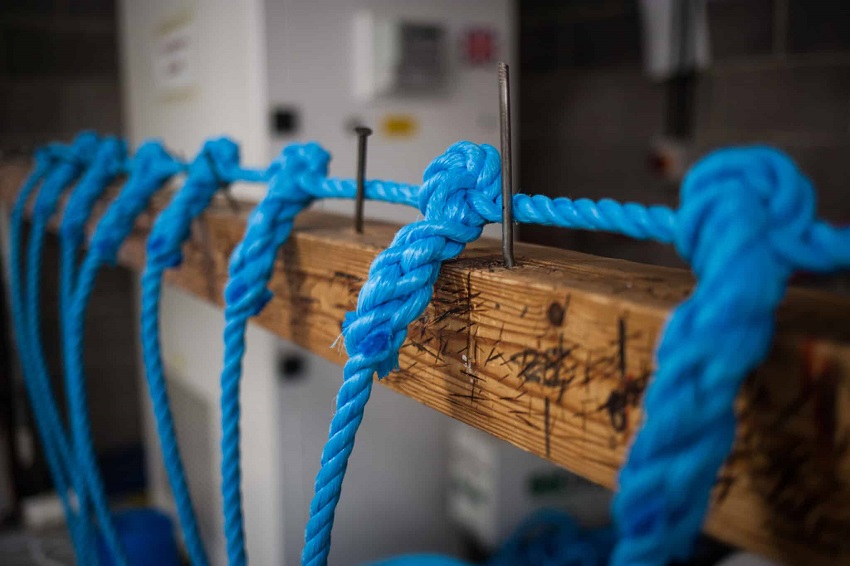Polypropylene rope is a versatile and reliable material known for its incredible strength and durability. This robust plastic-based rope has become a go-to choice for various applications due to its exceptional properties. From its flexibility to its resistance to moisture and rot, polypropylene rope has proven to be a top contender in the world of ropes. In this comprehensive article, we’ll delve into the various aspects of polypropylene rope, exploring its strengths and applications and providing insights into its limitations. So, let’s dive in and uncover why polypropylene rope stands out in a sea of options. The blog content presented is from yifarope.com.
Understanding Polypropylene Rope
Polypropylene rope is often considered the best rope for flagpole because of its durability and strength. Made from polypropylene, a type of thermoplastic polymer, the fibers are spun together to create a reliable and sturdy rope. But it’s not just its durability that makes polypropylene rope a standout option. It is also impressively flexible, which makes it a great choice for a variety of applications.
The Strength That Sets Polypropylene Rope Apart
When it comes to strength, polypropylene rope shines brightly. It boasts a tensile strength that outperforms many other types of ropes, including the traditional Manila rope. Its ability to withstand heavy loads makes it a reliable choice for demanding tasks. Whether you’re securing cargo, rigging, or setting up tents for camping adventures, polypropylene rope won’t disappoint.
The Versatility of Polypropylene Rope
Polypropylene rope’s versatility is yet another reason for its widespread popularity. This rope is utilized in an array of applications across various industries. From construction to maritime, agriculture to sports, polypropylene rope proves to be an invaluable asset. Let’s explore some of the key areas where it excels:
1. Maritime Applications
Due to its resistance to moisture and rot, polypropylene rope finds extensive use in maritime settings. Whether it’s for docking, anchoring, or towing, this rope remains strong and reliable even when exposed to harsh marine conditions. Its ability to float on water also makes it an excellent choice for buoy lines and water sports equipment.
2. Agriculture and Gardening
In the agricultural sector, polypropylene rope proves to be a dependable tool for various tasks. It is commonly used for securing bundles, creating trellises, and supporting plants. Its resistance to moisture ensures it can withstand outdoor conditions without succumbing to rot or weakening.
3. Construction and Rigging
The construction industry relies on sturdy ropes to carry out tasks effectively. Polypropylene rope’s high tensile strength and lightweight nature make it an ideal choice for rigging, hoisting, and general construction purposes. Whether it’s on a construction site or a high-rise building, this rope delivers the performance needed to get the job done.
4. Recreational and Sporting Activities
In recreational settings, polypropylene rope finds various uses. Its buoyancy makes it a favorite for pool markers and water sports equipment. Additionally, it’s often used for crafting durable hammocks and swings for outdoor relaxation.
The Heat Resistance Advantage
Polypropylene rope boasts a higher melting point compared to most other ropes, making it resistant to heat-related damage. However, it’s essential to be cautious during applications that involve friction. Excessive friction against the rope can cause it to melt, potentially compromising its structural integrity.
The Limitations of Polypropylene Rope
While polypropylene rope has numerous advantages, it’s essential to understand its limitations to use it most effectively. One significant limitation is its lack of stretch memory. Unlike some other ropes that return to their original shape after being stretched, polypropylene rope does not possess this characteristic. This means that if the rope is stretched beyond its capacity, it may not fully regain its original shape and could suffer structural damage.
Additionally, polypropylene rope is not recommended for use in situations where high temperatures are expected. It has a low resistance to heat, and as mentioned earlier, excessive friction can lead to melting. Therefore, careful consideration should be given when using it for applications that involve heavy friction, such as hauling or hoisting.
Maintenance and Care Tips
To ensure the longevity and performance of polypropylene rope, proper maintenance and care are essential. Here are some valuable tips to keep your polypropylene rope in excellent condition:
- Regularly inspect the rope for signs of wear, fraying, or abrasion.
- Clean the rope after use, especially if it comes into contact with saltwater or harsh chemicals.
- Store the rope in a dry and cool environment away from direct sunlight.
Conclusion
Polypropylene rope undoubtedly stands out as a reliable and robust option in the world of ropes. Its strength, flexibility, and resistance to moisture make it a preferred choice for a wide range of applications across various industries. Whether you’re in the maritime, construction, agricultural, or recreational sector, polypropylene rope is an invaluable tool that won’t disappoint.





